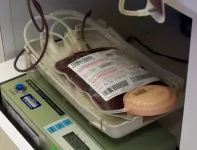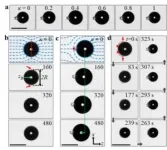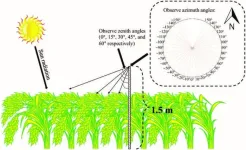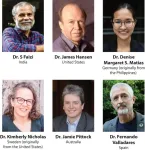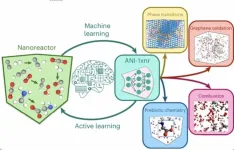(Press-News.org)
Allergic transfusion reactions (ATRs), a potentially life-threatening side effect of blood transfusions with unclear mechanisms, may be linked to food allergies in pediatric patients as per a recent study by scientists from Japan. They found that ATRs may be triggered by the presence of allergens in the donor’s blood, influenced by their pre-donation diet. These findings could pave the way for safer blood transfusions through the development of preventive measures and countermeasures for ATRs.
Blood transfusions are often life-saving procedures in various medical settings. They are required not only after severe blood loss due to surgery or trauma but also as standard treatment for certain blood disorders like anemia and sickle cell disease. However, blood transfusions can have serious side effects, with allergic transfusion reactions (ATRs) being particularly prevalent among children. Although scientists believe ATRs are caused by immunoglobulin E (IgE)-mediated type 1 allergy (or “immediate hypersensitivity”), the responsible allergens are not always known.
Against this backdrop, a research team composed of Dr. Ryu Yanagisawa of Shinshu University Hospital, Japan, alongside Dr. Minoru Tozuka and Dr. Yasunori Ito from Nagano Children's Hospital, Japan, set out to find more answers. In their latest study, published online in the journal Allergy on January 11, 2024, the researchers focused their attention on what might have appeared to be an unlikely suspect. Dr. Yanagisawa, who led the study at the University’s Division of Blood Transfusion, explains: “In our previous study, we found that pediatric patients with food allergies were characteristically more prone to ATRs. Considering that food allergies are also more prevalent in children, we decided to investigate whether the food the donor ate before giving blood could be associated with the development of ATRs in children with food allergies.”
Between May 2022 and December 2023, the researchers collected blood samples from over 100 pediatric patients with diagnosed food allergies toward either eggs, wheat, or milk. They also collected blood from two healthy donors before and after substantial ingestion of these food products and extracted the serum. Shortly after collecting blood from each allergic patient, the researchers conducted basophil activation tests (BATs) by exposing the sample to the corresponding sera. As the name implies, these tests assess the activation of basophils, a particular type of white blood cell that is strongly involved in allergic reactions.
Interestingly, in patients with egg allergy, BAT levels were significantly higher when the blood was exposed to the serum of donors who had ingested eggs. Moreover, serum obtained from blood donor samples collected four hours after egg ingestion resulted in markedly higher BAT levels than those collected two hours after egg ingestion. In contrast, the results for milk and wheat were more varied, with BAT levels only being elevated after exposure to the serum of one of the two donors.
To gain deeper insights and lend more weight to the results, the researchers decided to run BAT tests with sera from sixteen additional donors. “Although some differences were observed among donors, blood samples obtained after egg ingestion generally activated basophils in cases of egg allergy with high egg white-specific IgE levels,” comments Dr. Yanagisawa. “Similarly, elevated BAT levels in patients with milk and wheat allergies were also associated with allergen-specific IgE levels.”
Overall, the evidence obtained through this study strongly suggests that ATRs could be triggered by the food consumed by donors prior to a blood donation. Although further analyses and experiments will be needed to confirm this with more certainty, these efforts constitute a necessary first step towards elucidating the mechanisms underlying ATRs. “In future, it could be possible to predict in advance who is likely to suffer from an ATR. Given enough time, preventive measures and countermeasures to ATRs could be developed, leading to safer blood transfusions,” concludes Dr. Yanagisawa.
We, too, hope this study puts scientists on the right path toward cracking the mysteries of ATRs to improve the outcome of blood transfusions.
###
About Shinshu University
Shinshu University is a national university founded in 1949 and located nestling under the Japanese Alps in Nagano known for its stunning natural landscapes. Our motto, "Powered by Nature - strengthening our network with society and applying nature to create innovative solutions for a better tomorrow" reflects the mission of fostering promising creative professionals and deepening the collaborative relationship with local communities, which leads to our contribution to regional development by innovation in various fields. We’re working on providing solutions for building a sustainable society through interdisciplinary research fields: material science (carbon, fiber and composites), biomedical science (for intractable diseases and preventive medicine) and mountain science, and aiming to boost research and innovation capability through collaborative projects with distinguished researchers from the world. For more information visit https://www.shinshu-u.ac.jp/english/ or follow us on X (Twitter) @ShinshuUni for our latest news.
END
Melissa A. Kelly, MS, CGC is the recipient of the 2024 ACMG Foundation Carolyn Mills Lovell Genetic Counselor Award. Ms. Kelly received the Lovell award for her platform presentation at the 2024 ACMG Annual Clinical Genetics Meeting, “Integrating genomic medicine into healthcare: Experience disclosing >5,000 clinically relevant results within the Geisinger MyCode Community Health Initiative.”
Ms. Kelly said, “Thank you to the ACMG Foundation. I am humbled and honored to receive the Carolyn Mills Lovell Genetic Counselor Award. Throughout my career, I have seen many ways in which patients and their families interact with and are impacted ...
Rory James Tinker, MD is the recipient of the 2024 Richard King Trainee Award. This award was instituted by the ACMG Foundation for Genetic and Genomic Medicine to encourage American Board of Medical Genetics and Genomics (ABMGG), international equivalents, or genetic counseling trainees in their careers and to foster the publication of the highest quality research in Genetics in Medicine (GIM), an official journal of the ACMG.
Each year the editorial board reviews all articles published in GIM by ...
Meena Sethuraman, BS is the 2024 recipient of the ACMG Foundation/Revvity Travel Award. Ms. Sethuraman was selected to receive the award for her platform presentation, "Characterizing pathogenicity of ACADVL variants in very long-chain acyl-CoA dehydrogenase deficiency.”
Meena Sethuraman is a third-year medical student in the Physician Scientist Training Program at the University of Pittsburgh School of Medicine. Her research, being conducted with Dr. Jerry Vockley, FACMG, involves studying genetic variants in fatty acid oxidation disorders. Meena previously received her BS in Neurobiology at the University of Washington. Her undergraduate and post-baccalaureate ...
Each year, the ACMG Foundation for Genetic and Genomic Medicine grants its Next Generation fellowship awards to promising early career professionals in a range of medical genetics and genomics specialties including Clinical Biochemical Genetics Laboratory, Laboratory Genetics and Genomics, Medical Biochemical and Ophthalmic Genetics. Support for this year’s class of Fellows was generously provided by Pfizer, Sanofi, Spark Therapeutics, Bionano and Horizon Therapeutics. The ACMG Foundation depends on corporate ...
Solar-induced chlorophyll fluorescence (SIF) and the photochemical reflectance index (PRI) have emerged as significant tools in assessing the photosynthetic and carbon sequestration capacities of terrestrial vegetation, particularly for estimating gross primary productivity (GPP). However, the relationship between SIF, PRI, and GPP encounters challenges due to large temporal and spatial variabilities as well as the influence of various observational factors such as canopy structure and physiological state. Despite the potential of multi-angle observations and the Bidirectional Reflectance Distribution Function (BRDF) model to mitigate these ...
Corvallis, OR — The Alliance of World Scientists (AWS) is pleased to announce the six recipients of the 2024 Planet Earth Award: Dr. S Faizi, Dr. James Hansen, Dr. Denise Margaret S. Matias, Dr. Kimberly Nicholas, Dr. Jamie Pittock, and Dr. Fernando Valladares.
Planet Earth Award
The AWS Planet Earth Award acknowledges individuals who champion life on Earth. These individuals demonstrate exceptional creativity or contributions in their work in science-based advocacy with the public, ...
Computers work in digits — 0s and 1s to be exact. Their calculations are digital; their processes are digital; even their memories are digital. All of which requires extraordinary power resources. As we look to the next evolution of computing and developing neuromorphic or “brain like” computing, those power requirements are unfeasible.
To advance neuromorphic computing, some researchers are looking at analog improvements. In other words, not just advancing software, but advancing hardware too. Research from the University of California San Diego and UC Riverside shows a promising new way to store and transmit information ...
DALLAS (SMU) – What exactly happens at the tiny scale at which individual atoms exist and interact? SMU chemist Elfi Kraka and her colleagues have been working on developing a computational tool aimed at providing answers to that mystery.
Mathematical functions used to calculate the potential energy of a system of atoms are called interatomic potentials. Machine learning interatomic potentials (MLIP)s have become an efficient and less expensive alternative to traditional quantum chemical simulations, which even on today’s high-performance computing often become out of reach for larger ...
Although women have breastfed since the beginning of time, there is very little scientific research on how exercise affects breast milk.
Online forums for pregnant women and new mothers are full of questions about this exact issue:
Can exercise cause breast milk to go sour? What happens to breast milk if you do high-intensity interval training? Will strenuous exercise affect your milk supply?
“There are so many myths about exercise and breast milk. We simply need more knowledge,” says researcher Trine Moholdt at the Norwegian University of Science and Technology (NTNU).
She heads several international research projects ...
The ACMG Foundation for Genetic and Genomic Medicine is proud to present the ACMG Foundation/David L. Rimoin Inspiring Excellence Award to Christiana Wang, BS for her featured platform presentation at the 2024 ACMG Annual Clinical Genetics Meeting, “Antisense oligonucleotide targeting a linked-SNP provides allele-specific and effective knockdown to a dominant negative SPTAN1 pathogenic variant.”
Christiana Wang, BS, is a second-year PhD candidate in the Department of Molecular ...
